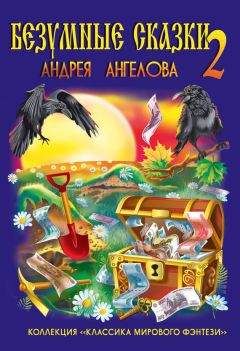Peake, Mervyn - 02 Gormenghast
There was no way for Titus to know which way to turn. He only knew that he could not return in the direction from which he had come. And so he began to walk as quickly, yet as lightly, as he could (to avoid the nightmare sensation that those loping and unbridled flights through the air had bred in him) in the direction in which the mysterious and floating creature had disappeared.
It was not long before the peerless lawns of moss that stretched between the oaks became pranked by dumps of ferns which, ignoring the sun's rays, appeared silhouetted, so dark was the viridian of their hanging fronds, so luminous their golden background. The relief to the boy's spirit was instantaneous, and when the sumptuous floor gave place to coarse grasses and the rank profusion of flowering weeds, and when, most refreshing of all to Titus' eyes, the oaks no longer cast their ancestral spell across the vistas, but were challenged by a variety of trees and shrubs, until the last of those gnarled monarchs had withdrawn and Titus found himself in a fresher atmosphere, then, at last he was dear of the nightmare and, with his hunger for redundant proof, was once again in the clear, sharp, actual world that he knew. The ground began to drop away before him at a lively gradient. As on the far side of the oak forest, here also were scattered rooks and groups of ferns; and then all of a sudden Titus gave a shout of happiness to see a living thing after the emptiness and nervelessness of the golden glades - a dog fox that, disturbed by his footsteps, had woken out of its midday sleep in a quiet nest of ferns, had got to its feet with extraordinary self-possession and trotted away at an even pace across the slant of the falling ground.
At the base of the slope a hazel wood began. Here and there a silver birch lifted its feathery head above the thicker foliage; or a dark-green ilex seemed like a green shadow in the sunlight. Titus began to hear the voices of birds. How could he quieten his hunger? It was too early in the year for wild fruit or berries. He was utterly lost, and the exhilaration he had felt at escaping from the oak woods was beginning to dwindle and to turn into depression when, after threading his way for little more than a quarter of a mile through the hazel trees he heard the sound of water; faint but distinct, away to the west. At once he began to run in the direction of the cool sound, but was forced to relapse into a walking pace, for his legs were heavy and tired, and the ground was uneven and patched with ground ivies. But as the sound of the water grew momently louder, so the ilex trees began to grow more thickly among the hazels, so that there was a rich, dark, blackish greenness about the shadows of the trees both overhead and at Titus' feet. The water now sounded loud in his ears, but so dense had the trees become that it was with a sudden shock that the dazzling breadth of a fast foam-streaked river appeared before him, and at that very instant, from out of the shadows of the wood on the opposite bank, there stepped a figure.
He was a gaunt and marcid creature, very tall and thin; his high, scrawny shoulders twisted forwards, his cadaverous head lowered, with the thinly bearded jaw protruding as though in defiance. He was clothed in what had once been a suit of black material, but was now so bleached by sun and soaked in a hundred dews that it had become a threadbare blotchwork of olive-and-grey rags indistinguishable among the leaves of the forest.
As this gaunt figure stepped down to the water's edge a sound of clicking that Titus could in no way account for floated over the bright waters. It appeared to break out at his every step like a distant musket shot or the breaking of a dry twig, and to cease whenever he stopped moving. But Titus soon forgot about this peculiar noise, for the man on the opposite bank had reached the river and waded out to where a flat, sun-baked rock the size of a table basked in the midstream.
As he extracted from among his rags a length of line and a hook, and as he began to fix the bait, he glanced about him, comparatively carelessly at first and then with a dawning apprehension, until finally he dropped his line upon the rook beside him and, sweeping the opposite shore with his eyes, he focused them on Titus.
Partially shielded behind a heavy branch of leaves, Titus, who had made no sound, was horrified at being so suddenly discovered and the blood rushed into his face. But he could not take his eyes from those of the emaciated man. He was now crouching on the rock. His small eyes, which had burned beneath his rocklike brows, now glittered with a peculiar light and all at once his hoarse voice sounded across the river: 'My Lord!' It was a sharp, rough cry, with a catch in the throat as though the voice had not been sounded for a long while.
Titus, whose instincts had been torn between flying from those hot wild eyes and his excitement at finding another human being, however emaciated and uncouth, stepped forward into the sunlight at the river's edge. He was frightened and his heart beat loudly, but he was famished also and deadly weary.
'Who are you?' he cried. The figure stood up on the hot rock. His head was thrust forward towards Titus; his tall body trembled.
'Flay,' he said at last, his voice hardly audible.
'Flay!' cried Titus. 'I've heard of you.'
'Aye,' said Flay, his hands gripped together... 'likely enough, my lord.'
'They told me you were dead, Mr Flay.'
'No doubt of it.' (He looked about him again, taking his eyes from Titus for the first time.) 'Alone?' His interrogation sounded hoarsely across the water.
'Yes,' said Titus. 'Are you ill?'
Titus had never seen so gaunt a man before. 'Ill, lordship? No, boy, no... but banished.'
'Banished!' cried Titus.
'Banished, boy. When you were only a... when your father... my lord...' He ended suddenly. 'Your sister Fuchsia?'
'She's all right.'
'Ah!' said the thin man, 'no doubt of it.' (There was a note almost of happiness in his voice, but then, with a new note): 'You're done, my lord, 'n windless. What brought you?'
'I escaped, Mr Flay - ran away. I'm hungry, Mr Flay.'
'Escaped!' whispered the long man to himself with horror; but he gathered and pocketed his hook and line and withheld a hundred burning questions.
'Water's too deep - too fast here. Made crossing - boulders - half mile up stream - not far, lordship, not far. Follow your edge with me, follow your river edge, boy - we'll have a rabbit'; (he seemed to be talking to himself as he waded back to the bank on his side of the river) 'rabbit and pigeon and a long cabin-sleep.... Blown he is son of Lord Sepulchrave... ready to drop... Tell him anywhere eyes like her ladyship's Escaped from the Castle!... No... no mustn't do that... No, no must send him back, seventy-seventh Earl. Had him in my pocket size of a monkey... long ago...'
And so Flay rambled on as he strode along the bank, with Titus following him on the opposite shore, until after what seemed an endless journey by the water's edge they came to the crossing of boulders. The river ran shallowly at this point, but it had been no easy work for Flay to shift and set the heavy boulders in place. For five years they had stood firm in the rushing water. Flay had made a perfect ford, and Titus crossed at once to him. For a moment or two they stood awkwardly staring at each other; and then, all of a sudden, the cumulative effects of his physical excitement, the shocks and privations of the day, told upon Titus and he collapsed at the knees. The gaunt man caught him up in an instant and, putting the boy, carefully over his shoulder, set off through the trees. For all his apparent emaciation there was no question as to Mr Flay's stamina. The river was soon left far behind. His long, sinewy alms held Titus firmly in place across his shoulder; his lank legs covered the ground with a long, thin, muscular stride and, save for the clicking of his knee-joints, with peculiar silence. He had learned during his exile among the woods and rocks the value of silence, and it was second nature for him to pick his way over the ground like a man born to the woods.
The pace and certainty of his progress testified to his intimate knowledge of every twist and turn of the terrain.
Now he was waist deep in a valley of bracken. Now he was climbing a slope of reddish sandstone; now he was skirting a rock-face whose crown overhung its base and whose extensive surface was knuckly with the clay nests of innumerable martins; now he had below him a drop into a sunless valley; and now the walnut-covered slopes from where, each evening, with hideous regularity a horde of owls set sail on bloody missions.
When Flay, topping the brow of a sandy hill, stood for a moment breathing heavily and stared down into the little valley. Titus, who had insisted upon walking by himself for some while past - for even Flay had not been able to sustain his weight during the uphill climbs - stopped also, and with his hands on his knees, his tired legs rigid, he leaned forward in a position of rest.
The little valley, or dell, beneath them was shut in by tree-covered slopes, save to the south where walls of rock overgrown with lichen and mosses shone brightly in the rays of the declining sun.
At the far end of this grey-green wall were three deep holes in the rock - two of them several feet above the ground and one at the level of the valley's sandy floor.
Along the valley ran a small stream, broadening out into an extensive pool of clear water in the centre, for at the far end of the lake where it had narrowed to a tongue was a rough dam. Long evenings had been spent in its making, simple as it was. Flay had hauled a couple of the heaviest logs he could manage and laid them close to one another across the stream. Titus could see them plainly from where he stood, and the thin stream of the overflow at the dam's centre. The sound of this overflow trilled and splashed in the silence of the evening light, and the little valley was filled with its glass-like voice.
They descended to the patchwork valley of grass and sand and skirted the stream until they reached the dam and the broad expanse of the trapped water.
Not a breath of air disturbed the tender blue of its glass-like surface in which the hillside trees were minutely reflected. Rows of stakes had been driven into and against the inner sides of the logs to form a crib. This space had been filled with mud and stones until a wall had risen and the lake had formed, and a new sound had come to the valley - the tinkling sound of the glittering overflow.
A few moments later they were at the mouth of the lowest of the openings into the rock. It was but a cleft, about the width of an ordinary door, but it widened into a cave, a spacious and fern-hung place. This inner cave was lit by the reflected light thrown from the sides of the wide natural chimneys whose vents were those mouth-like openings in the rock face a dozen feet above the entrance. Titus followed Flay through this fissure-like doorway and when he had reached the cool and roughly circular floor of the inner cave he marvelled at its lightness, although it was not possible for a single ray of the sun to pierce unhindered, for the wide rocky chimneys wound this way and that before they reached the sunlight. Yet the sunbeams reflected from the sides of the winding chimneys flooded the floor with cool light. It was a high domed place, this cave, with several massive shelves of rock and a number of natural ledges and niches. On the left-hand side the most impressive of these natural outcrops stood out from the wall in the form of a five-sided table with a smooth shelving top.
These few things Titus was able to take in automatically, but he was too exhausted and sick with hunger to do more than nod his head and smile faintly at the long man, who had lowered his tilted head at Titus as though to see whether the boy was pleased. A moment later Titus was lying on a rough couch of deep dry ferns. He closed his eyes and, in spite of his hunger, fell asleep.
TWENTY
When Titus awoke the walls of the cave were leaping to and fro in a red light, their outcrops and shelves of stone flinging out their disproportionate shadows and withdrawing them with a concertina motion. The ferns, like tongues of fire, burned as they hung from the darkness of the domeing roof, and the stones of the crude oven in which an hour or more ago Flay had lit a great fire of wood and fir-cones, glowed like liquid gold.
Titus raised himself on his elbow and saw the scarecrow silhouette of the almost legendary Mr Flay (for Titus had heard many stories of his father's servant) as he knelt against the glow with his twelve-foot shadow reaching along the gleaming floor and climbing the wall of the cave.
'I am in the middle of an adventure,' Titus repeated to himself, several times, as though the words themselves were significant.
His mind raced over the happenings of the day which had just ended. He had no sense of confusion when he woke. He recollected everything instantaneously. But his recollections were interrupted by the sudden teasing excitement of the rich odour of something being roasted - it may have been this that had awakened him. The long man was twisting something round and round, slowly, on the flames. The ache of his hunger became unbearable, and Titus got to his feet, and as he did so Mr Flay said, 'It's ready, lordship - stay where you are.'
Breaking pieces from the flesh of the pheasant, and pouring over them a rich gravy, he brought them over to Titus on a wooden plate which he had made himself. It was the cross section of what had been a dead tree, four inches thick, its centre scooped into a shallow basin. In his other hand, as he approached the boy, was a mug of spring water.
Titus lay down again on the bracken bed, resting himself on one elbow. He was too ravenous to speak but gave the straggling figure that towered over him a gesture of the hand - as though of recognition - and then, without a moment wasted, he devoured the rich meal like a young animal.
Flay had returned to the stone oven, where he busied himself with various tasks, feeding himself intermittently as he proceeded. Then he sat down on a ledge of rock near the fire on which he fixed his eyes. Titus had been too preoccupied to watch him, but now, with his wooden plate scraped to the grain, he drank deeply of the cold spring water and glanced over the lip of the mug at the old exile, the man whom his mother had banished - the faithful servant of his dead father.
'Mr Flay,' he said.
'Lordship?'
'How far away am I?'
'Twelve miles, lordship.'
'And it's very late. It's night-time, isn't it?'
'Aye. Take you at dawn. Time for sleep. Time for sleep.'
'It's like a dream, Mr Flay. This cave. You. The fire. Is it true?'
'Aye.'
'I like it,' said Titus. 'But I'm afraid, I think.'




